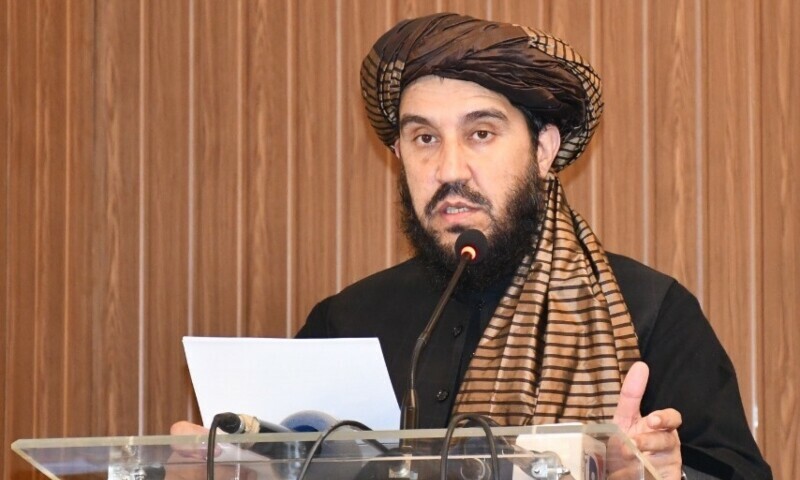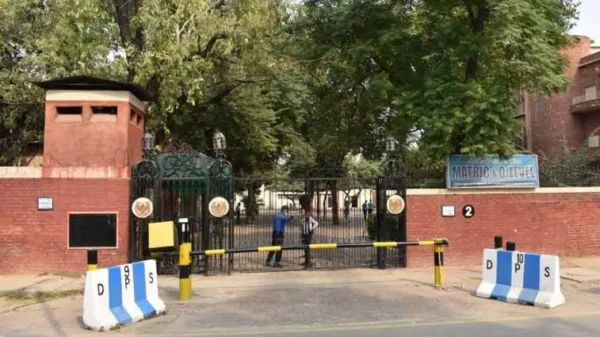Pakistan
ISLAMABAD: In response to Islamabad’s concerns over security issues, Afghan Chargé d’Affaires Mawlawi Sardar Ahmad Shakeeb assured on Tuesday that Afghanistan will not permit its soil to be used by terrorist groups against Pakistan.
He made this statement during a seminar titled “Strengthening Economic Ties between Pakistan, Afghanistan, and Central Asia,” organized by the Institute of Regional Studies (IRS).
Since the Taliban government took power in Afghanistan in 2021, Pakistan has seen a notable rise in militant attacks, particularly in the northwestern province of Khyber Pakhtunkhwa, which borders Afghanistan, and in Balochistan, which is adjacent to both Afghanistan and Iran.
Pakistan has accused Kabul’s interim government of failing to eliminate militants who use Afghan territory as a safe haven while planning assaults on Pakistani soil.
Addressing these concerns, Shakeeb acknowledged that both Pakistan and Afghanistan are facing significant security challenges. He emphasized the Afghan government’s desire for peace, security, and stability in the region, expressing hope for cooperative efforts to tackle these issues.
Shakeeb further clarified Afghanistan’s stance, stating that its policy firmly opposes supporting non-state elements. He explained that Kabul is working to convince Islamabad that “some non-state elements are responsible for infiltrating into Pakistan,” and reiterated Afghanistan’s commitment to not allowing its land to be used against its neighbor.
During his speech, Shakeeb also highlighted the opportunities presented by the China-Pakistan Economic Corridor (CPEC), stating that the project holds great potential not only for Pakistan but for the broader region, including Afghanistan.
He expressed Afghanistan’s interest in participating in the Belt and Road Initiative, noting that such involvement would attract investments in Afghanistan’s infrastructure and foster closer ties among regional countries.
He advocated for trilateral cooperation between Afghanistan, Pakistan, and China, emphasizing that this collaboration could pave the way for a new era of regional development.
Terming Pakistan as one of Afghanistan’s key trade partners, Shakeeb reiterated his administration’s commitment to enhancing trade and investment between the two nations.
He acknowledged recent challenges in the trade relationship, including Western sanctions, frequent closures of border crossings, limited customs facilitation, sudden increases in tariffs, and excessive checks on loaded vehicles. However, he noted that Afghanistan is actively striving to overcome these hurdles and revitalize economic relations with Pakistan.
Shakeeb called for both countries to invest in trade infrastructure, improve customs procedures, and develop transportation links to facilitate smoother trade flows. He also underscored the importance of building mutual trust and strengthening diplomatic dialogue, which would help lay the foundation for sustained economic cooperation.
Moreover, he urged against the imposition of economic restrictions and other policies that could hinder regional economic collaboration. Shakeeb emphasized that Afghanistan could serve as a bridge between South Asia and Central Asia, with the potential to contribute significantly to regional economic growth.
He shared updates on key infrastructure projects, revealing that Afghanistan has begun work on the Turkmenistan-Afghanistan-Pakistan-India (TAPI) gas pipeline and noted that Kazakhstan had expressed interest in joining the project. Additionally, Afghanistan is working on other initiatives such as the Trans-Afghan Railway and the CASA-1000 power transmission project.
IRS President Ambassador Jauhar Saleem, who also spoke at the seminar, stressed the importance of stability in Afghanistan for promoting intra-regional trade and economic prosperity. He highlighted that insecurity in Afghanistan and the inability to curb terrorism would impede the development of regional economic cooperation, which is vital for improving the welfare of the entire region.










